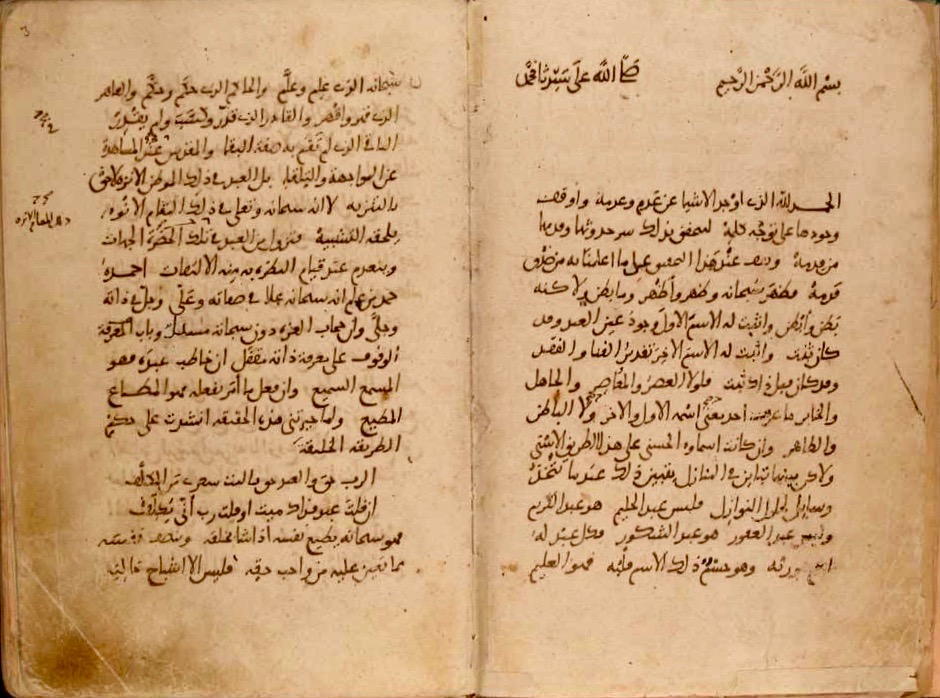2.2.5 Mirrors for Princes (Supplemental)

Opening pages of the Konya manuscript of the Meccan Revelations, handwritten by Ibn Arabi. Wikimedia Commons.
The Persian tradition of advice literature dates back to pre-Islamic times and the Middle Persian, or Pahlavi, works of the Sasanian period. It was one of the central areas of Persian cultural expression and constituted a major contribution to Islamic civilization. The use of the term “mirror for princes”, which has been appropriated by scholars in Perso-Islamic studies to refer to books of advice on kingly ethics and royal conduct, is borrowed from the medieval European genre of the speculum regis or Fürstenspiegel… (Jackman Humanities Institute, 2019)
- What does the phrase “mirror for princes” mean?
- What kind of advice do we find in such writings?
- According to Nizam al-Mulk, what was the king’s duty?
- What exchange is there between Persian traditions and Islamic practices?
Photo: Opening pages of the Konya manuscript of the Meccan Revelations, handwritten by Ibn Arabi between 1203 and 1240. Photo credit: Wikimedia Commons user إيان. Public domain.


